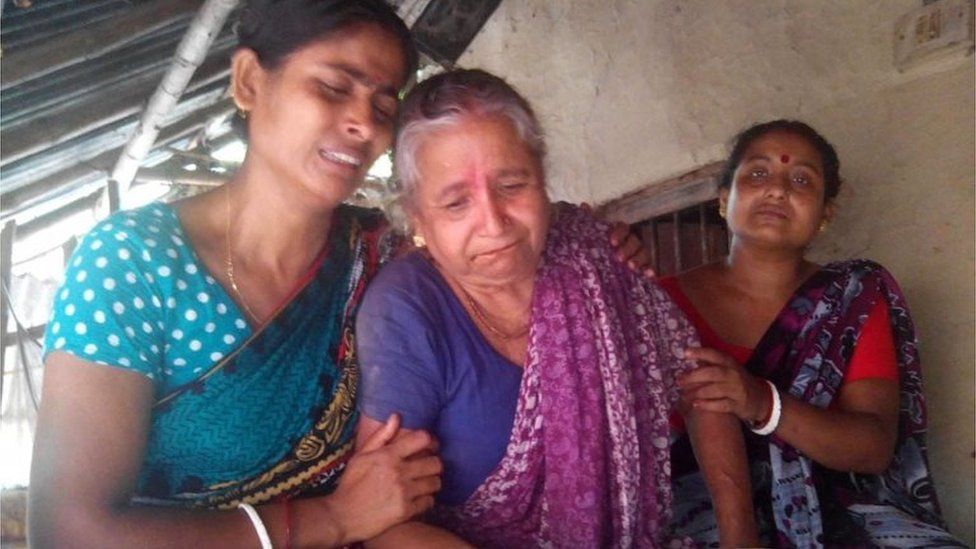Bangladesh Hindu priest murdered by militants
- Published

A Hindu priest has been killed in Bangladesh, in the latest attack by Islamist militants.
The body of Ananda Gopal Ganguly, 70, was found in a field near his temple in western Jhenaidah district. His head had been nearly severed from his neck.
Separately, police have killed three suspected Islamists in a crackdown on extremists blamed for the murders.
Critics say the government is in denial about the killings, most of which have been blamed on or claimed by Islamists.
Two alleged members of the banned Jamaat-ul-Mujahideen Bangladesh (JMB) were shot dead in Dhaka when police raided a home in the city - police said unidentified gunmen opened fire on them.
A third - said to have been linked to a recent bombing of an Ahmadiya mosque - was killed in western Rashahi district.
Ananda Gopal Ganguly is the third person to be killed in such an attack in the past two days.
"He left home this morning saying that he was going to a Hindu house to offer prayers," deputy police chief Gopinath Kanjilal told AFP news agency. "Later, farmers found his near-decapitated body in a rice field."
The Middle East-based Islamic State militant group says it carried out the killing, but a government spokesman told the BBC that all the recent attacks were the work of domestic extremists.
On Sunday the wife of a senior police officer investigating the attacks and a Christian businessman were killed.
Bangladeshi liberals are afraid of who might be next
Police say more than 40 people have been killed since January last year in the wave of attacks on those seen by extremists as offensive to Islam.
The government insists that Islamic State does not have a presence in Bangladesh and has tended to blame the opposition and local militant groups.
Critics have accused the government of failing to properly address the violence in Bangladesh.
Who is being targeted?
The grim list of those who have fallen victim to attacks by Islamist militants in Bangladesh is growing ever more diverse.
Secular bloggers, academics, gay rights activists, and members of religious minorities including Shia, Sufi and Ahmadi Muslims, Christians and Hindus have all been killed, many of them hacked to death.
A university professor whose family said he was not an atheist was murdered in April, suggesting the list of those at risk had widened further.
Who exactly is behind the attacks remains murky. Bangladesh has myriad extremist groups and there have been few convictions over the attacks.
Bangladesh has disputed claims by so-called Islamic State (IS) or al-Qaeda-linked groups for the attacks, instead often blaming opposition parties or local Islamist groups.
But until the killings stop the government itself will face accusations of not doing enough to protect minorities in the Sunni-dominated nation.
- Published6 June 2016
- Published20 May 2016
- Published15 May 2016
- Published14 May 2016
- Published5 May 2016
- Published2 May 2016
- Published1 December 2015
- Published7 August 2015
- Published12 May 2015